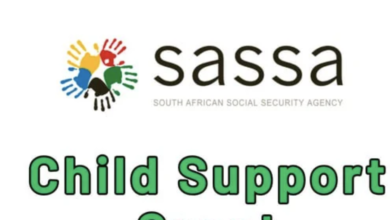Can I Transfer Children’s Grants to Someone
Transferring Children's Grants to South Africa: Is It Feasible?

Children’s grants are essential financial support programs designed to assist families in meeting the basic needs of their children. These grants can vary from one country to another and often come with specific guidelines and restrictions. If you’re receiving a children’s grant in one country and want to know whether it’s possible to transfer it to someone in South Africa, this article will provide you with valuable information on the topic.
Understanding Children’s Grants
Children’s grants, also known as child benefits or family allowances, are government assistance programs aimed at providing financial support to parents or guardians responsible for the upbringing of children. These grants are intended to cover various expenses associated with childcare, including food, clothing, education, and healthcare. The eligibility criteria and the amount of support provided typically depend on the country’s policies and the family’s income level.
Transferring Children’s Grants to South Africa
Transferring children’s grants from one country to another, such as sending them to someone in South Africa, can be challenging due to the differences in government policies and eligibility criteria. Here are some key points to consider:
- Country-Specific Policies:Children’s grant programs are unique to each country, and the eligibility criteria and application processes differ widely. For instance, the United States has programs like the Child Tax Credit, while South Africa has its Child Support Grant. To transfer a children’s grant, it’s crucial to understand the policies and regulations governing both the sending and receiving countries.
- Residency and Citizenship Requirements:Most countries require recipients of children’s grants to be residents or citizens of that country. If you or the intended recipient are not residents or citizens of the country providing the grant, it may not be possible to transfer it.
- International Agreements:Some countries have bilateral or multilateral agreements that allow for the transfer of certain benefits between nations. These agreements are typically in place for social security benefits but may not cover children’s grants. Check if such agreements exist between your country and South Africa.
- Tax Implications:Transferring financial support across international borders may have tax implications for both the sender and the recipient. It’s advisable to consult with tax experts or government authorities to understand the tax consequences.
- Legal Requirements:Consult with legal experts or relevant government authorities to determine the legality of transferring children’s grants internationally. Engaging in unauthorized transfers may lead to legal consequences.
- Alternative Support:If transferring the grant is not feasible, consider exploring alternative ways to provide support to the intended recipient in South Africa. This could include sending financial assistance through legitimate channels or exploring international remittance services.
Conclusion
While the desire to support family members or loved ones in South Africa with children’s grants is commendable, the process can be complex due to the varying policies and regulations in different countries. It’s essential to thoroughly research the specific requirements of both the country providing the grant and South Africa, and to seek legal and financial advice to ensure compliance with all relevant laws and regulations. In cases where transferring the grant is not possible, exploring alternative means of support can still provide assistance to those in need.



